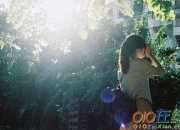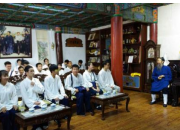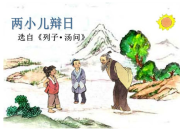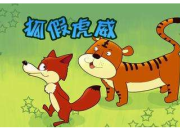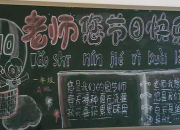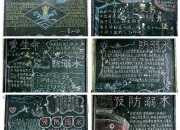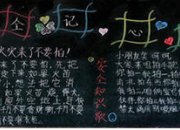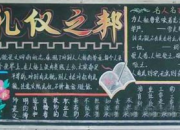英语revision语句的教学指导
时间:2021-08-31英语revision语句的教学指导
教学目标
教学目标与要点
1.掌握本单元的词汇和部分短语的用法。如:so far,send up,make up,put off,etc.
2.能正确表达两地距离,根据列车里程表进行分析。
3.能熟练谈论购物、选择电视节目、物品的产地和用途等话题,掌握相关的日常用语。
学习构词法:n + n → n;n + ing/-en → adj;v + er/ or →n;如:fire + place = fireplace,interest - interesting, print - printer
学习课文The Universe and Man - made Satellites,扩大知识面,了解航天等前沿科技。
6.复习、归纳动词不定式、被动语态的构成和用法及相关注意事项,省去to的动词不定式,必须加上to的被动语态等。如:help sb.do sth,be made to do sth.
本单元词组和日常交际用语
(一) 本单元词组和短语
send sb an email 给……发电子邮件
different parts of the computer 电脑的不同部件
put … together 把……连在一起;组装……指向……
put information into the computer 把信息输入电脑
provide information on a screen 在屏幕上提供信息
point at… 指向……
talk about… 谈论……
travel around… 围绕……运行
send up … into… 往……发射…..
spaceships without people 无人的宇宙飞船
use … to do … 用……做……
send and receive messages 发射和接受信息
with the help (of) 在(……的)帮助下
all the time 始终
thanks to… 归功于;幸亏……
people from different countries 来自不同国家的人们
no smoking 禁止吸烟
computer room 微机室;电脑房
spend time alone 独自打发时间
(二)日常交际用语和句型
It is about … kilometres from … to…. 从…… 到…… 大约…… 公里。
How many kilometers by train / plane / boat / car …is it from … to…? 从……到……坐火车/坐飞机/坐船/坐轿车大约……公里。
I want to let you choose what to do. 我想让你选择该干什么。
教学建议一
教材内容分析
学习了一些常用词组和简单的构词方法。通过对课文“The Universe and Man - made Satellites”的学习,我们要了解一些有关太空的常识,来激发学习的积极性,提高学习英语的兴趣。课文中出现有现在完成时态的被动语态。同时,我们要能够读懂列车里程表,能熟练地谈论“购物、选择电视节目”等话题,掌握相关日常用语。
本单元重点例句及词语辨析
1. I hope I can make my own computer that way someday. 我希望有朝一日我能在家里用那种方式制造我自己的电脑。
Someday (some day)和one day 都可以表示“总有一天;有朝一日”的意思。
【例】 Someday we’ll go there to visit you though you are too far away from us. We are all going to stay together one day. 虽然你离我们很远,但有朝一日我们一定去看你。总有一天我们会在一起的。
2.I’m sure you can. 我确信你行。
be sure 意为“确信;确定;肯定”,其有三种用法:be sure of sth, be sure to do sth和be sure that从句。
【例】
(1) Are you sure that he is honest?
你能肯定他老实吗?
(2)— Are you sure of it?
— Yes, I am sure.
— 你对这事有把握吗?
— 是的,我确信。
(3)— Be sure to write to me as soon as you get there.
— Of course.
— 你一到那里一定给我写信。
— 当然。
3. When we talk about the universe, we mean the earth, the sun, the moon and the stars, and the space between them. 当我们谈论宇宙时,我们指的是地球,太阳,月亮,星星以及它们之间的宇宙空间。
(1) 当我们谈论独一无二的事物说,要在前面加上“the”。如the earth, the sun, the moon。sky的前面必须加the。
(2) 关于space, universe, sky三个词汇的区别
space含“宇宙空间”之意,指大气层以外的太空领域,其前不用冠词,space有时指“间隙;空间”,为不可数名词。;universe含“宇宙万物”之意,指物质,如星星、太阳、月球等,其前常用定冠词the;sky指从地球上看,头顶之上的“天空”,通常与定冠词连用,多用单数形式,如果前在面有形容词修饰,则用“a(an)+形容词+sky”句式。
【例】
Nobody can tell exactly information about when the universe first came into being. But the spaceship travelled through space to the moon brings us hope to study it. Now satellites are used for studying the universe. And we are sure it is not God who makes the universe. We can see a clear, blue sky, and someday we will know more about it. There is no space for doubt. Is it right?
没人能准确说出宇宙是什么时候产生的。但是宇宙飞船登陆月球给我带来研究它的希望。现在卫星用于研究宇宙。我们确信了不是上帝创造了宇宙。我们能看到一个湛蓝、明朗的天空,总有一天,我们会了解到更多。我们没有怀疑的余地。不是吗?
4. The moon travels round the earth. 月球围绕地球转。
(1)travel 在句中意为move, go等,travel还可作“旅行;传播”讲,
【例】He has never travelled to the big cities in the north of China.他从没有旅行过中国北方的大城市。
Light travels faster than sound. 光比声音传播得快。
(2)round, around两词都可与动词连用,但与前者连用的动词具有活动性;与后者连用的动词带有静止性,
【例】The students are running round a chair to play a game. 学生们正围着椅子跑,做游戏。
We often sit around the old man and listen to his interesting stories. 我们经常围坐在那个老人周围听他讲有趣的故事。
5. Many of the stars cannot be seen because they are too far away.
satellite,plane与star这三个单词有相近的含义,但它们的用法各不相同。satellite表示“卫星”,planet表示“行星”,star表示“星星”。
(1)satellite具体来说,有两种含义:一种是指卫星,也就是说围绕行星运行的天体,它本是不发光。
【例】The moon is a satellite of the earth.
月亮是地球的卫星。
另一种意义是人造卫星,即:围绕着某个天体转的由人类发射的卫星。
【例】A new artificial satellite has been launched again by China.
中国又发射了一颗新人造卫星。
其他与satellite连用的名词。
【例】a satellite station 卫星电台
a manned satellite 载入卫星
(2) planet是“行星”,也就是说围绕太阳运转的天体,本身不发光,只能反射太阳光。例如:
Do you know the nine major planets?
你知道九大行星吗?
(九个行星是:Mercury 水星;Venus金星;the Earth地球;Mars火星;Jupiter 木星; Saturn土星;Uranus天王星;Neptune海王星;Pluto冥王星)
(3) star是“恒星;星星”,它有两层含义:一是泛指夜晚我们天空中见到的所有的天体;二是其本身能发光和热的天体。
【例】the evening star 昏星
the morning star 晨星
the North star 北极星
另外:star还有其他的意义:
the Red Flag with Five Stars 五星红旗
film stars 影星(电影明星)
famous stars明星
6. So far, no man has traveled farther than the moon, but spaceships without people have reached other parts of the universe. 到目前为止,还没有人到达比月球更远的地方,但是无人驾驶宇宙飞船已经到达宇宙的其他地方。
(1) so far 的意思是到目前为止,可解释成“until now, up to now”。
【例】They have been to many cities in the south so far. 到目前为止,他们已经去过许多城市了。= They have been to many cities in the south up to now.
(2) without的意思是“无;没有”。它可以用来完成同义句的改写。
【例】Fish can’t live if there is no water. 鱼儿离不开水。= Fish can’t live without water.
(3) These satellites go round the earth and … 这些卫星围绕地球运行……
注意:客观存在的事实在表示一般过去时的句子中做宾语从句,依旧用一般现在时,表示客观真理。如:Our teacher told us that the sun is round.
7. Our knowledge of the universe is growing all the time. 我们对宇宙的认识一直在增长。
(1) knowledge是know的名词形式,作“知识;学问”讲,是不可数名词。one’s knowledge of…的意思是“对……的认识/了解。”knowledge 的前面若有定语修饰,可与a连用,表示“对……某种程度的了解”。
【例】Your knowledge of English is weak. He has a good knowledge of study.

